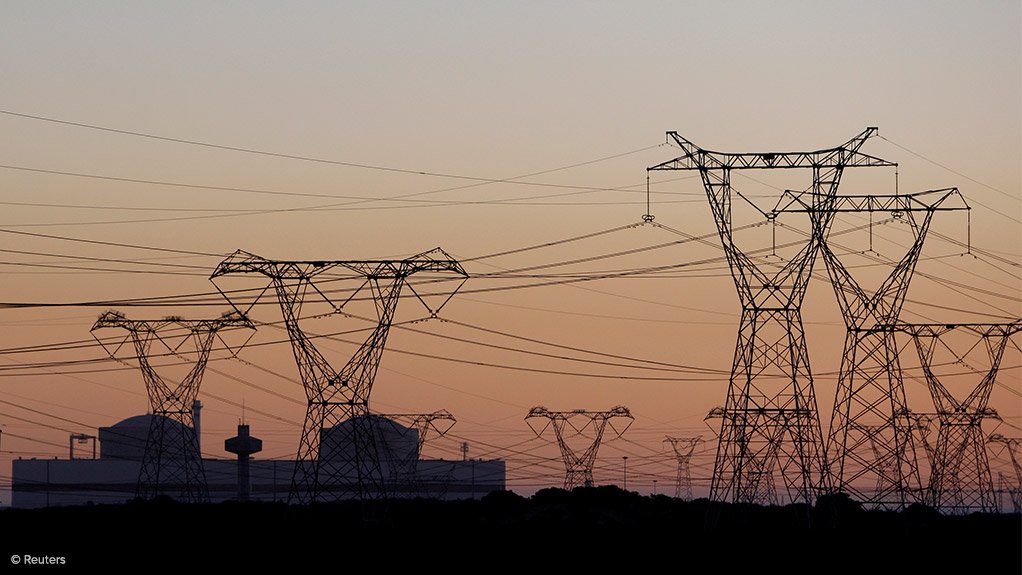Eskom generation head Bheki Nxumalo has indicated that an extended outage at Koeberg Unit 2, which begins on December 11, is currently expected to continue until September 2024, increasing the prospect of both Koeberg units being out of service simultaneously from late July next year.
Nxumalo provided an update on the outage schedule during a briefing on the implementation of the Energy Action Plan, at which it was confirmed that Unit 1 had been ramped up to 924 MW by December 10.
This, following the unit’s much-delayed outage, during which its three steam generators were replaced. Unit 2’s steam generators will be replaced during the outage starting on December 11.
The replacement forms a key part of Eskom’s application to the National Nuclear Regulator (NNR) for authorisation to operate Koeberg’s two pressurised water reactors for a further 20 years, after their 40-year licence expires.
As things stand, the licences for both units will expire on July 21, 2024; the same date on which Eskom currently intends removing Unit 1 for another 200-day-plus outage to conduct compulsory works in line with a ten-year maintenance cycle, including crucial containment building leak tests.
However, Eskom has indicated to Engineering News in response to an enquiry that, for operational reasons, it would “definitely like to shift the start of the next outage on Unit 1”.
Such a move would be dependent, however, on a “positive Long-Term Operation (LTO) decision by the NNR”.
The NNR is currently conducting a public participation process on the LTO Safety Case, which was submitted by Eskom in June 2022, and will host three sets of public hearings in February ahead of a final decision in July.
Eskom has also applied to the NNR to have the unit 1 and 2 licences separated to reflect the fact that Unit 2 entered into commercial operation on November 9, 1985; more than a year after Unit 1, on July 21, 1984.
The NNR has completed a review of the decoupling, including an assessment of some components shared by both units, such as the seismic bearings and cables, and its board will make a decision before the end of January.
Should the decoupling approval be followed by an LTO approval, Eskom might be able to shift the 200-day-plus maintenance out, presumably until after Unit 2 resumes production with its three new steam generators.
Should the decoupling and LTO be refused, both units will be out of service from July 21.
Nxumalo expressed confidence in the case Eskom had made for the separation of the licences and indicated that a positive decision could provide it with some operational flexibility should the LTO also be approved.
He added that, by July 21, Unit 1 would have been in operation for just over seven months, meaning that there would be scope for it to continue operating should an NNR LTO authorisation be in hand.
“But we don't want to preempt issues at this stage.
“The first thing that we must work on is to get that approval for the life-extension of Koeberg,” Nxumalo said.
Eskom told Engineering News separately that, based on the reviews performed and international experience, it “remains optimistic that the NNR will issue the licence for LTO”.
“As long as this is received prior to the date specified in the current licence then it is unlikely that both units will be out of service at the same time.”
Nevertheless, both units will still have to undergo the mandatory 10-year maintenance tests in the coming two years, with the tests on Unit 1 having been carried out previously in 2015 and on Unit 2 in 2016.
Therefore, even if Eskom can avoid having both units out simultaneously from July 21, 2024, there will still be long periods, from now until 2026, when only one unit will be producing at any given point.
This has been the case for the whole of 2023, which has been South Africa’s most disrupted year for loadshedding, both with regards to the number of days affected and the level of intensity, with Stage 6 having been declared on several occasions.
The absence of a single Koeberg unit typically adds a full stage to the intensity of loadshedding.
EMAIL THIS ARTICLE SAVE THIS ARTICLE ARTICLE ENQUIRY
To subscribe email subscriptions@creamermedia.co.za or click here
To advertise email advertising@creamermedia.co.za or click here











